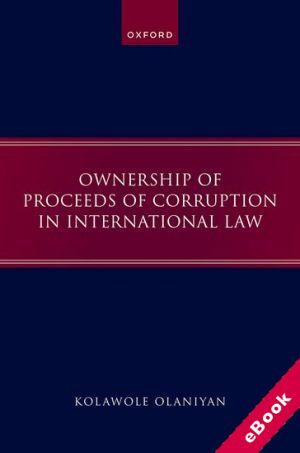
The device(s) you use to access the eBook content must be authorized with an Adobe ID before you download the product otherwise it will fail to register correctly.
For further information see https://www.wildy.com/ebook-formats
Once the order is confirmed an automated e-mail will be sent to you to allow you to download the eBook.
All eBooks are supplied firm sale and cannot be returned. If you believe there is a fault with your eBook then contact us on ebooks@wildy.com and we will help in resolving the issue. This does not affect your statutory rights.
Recovery of proceeds deriving from corruption is now increasingly recognised as a principle of contemporary international law. However, people's sovereign and ownership rights over their wealth and natural resources have remained more theoretical than real, especially in the global fight against corruption. As a result, the populations of victim-states often cannot hold their governments accountable for misusing proceeds of corruption, and do not benefit from the recovery, repatriation, management, and use of returned proceeds. In the first comprehensive study on the issue, Kolawole Olaniyan challenges the conventional notion that sovereign and ownership rights over wealth and natural resources - and by extension, the proceeds of corruption - should be exclusively exercised by States.
Olaniyan's Ownership of Proceeds of Corruption in International Law examines the relationship between the right to wealth and natural resources, proceeds of corruption, and economic activities. Focusing on victims of corruption, the book argues that victim-states' populations ought to be empowered to pursue grand corruption and asset recovery actions against their governments. It proposes theoretical and legal remedies for recovering proceeds of corruption, encouraging the development of domestic laws.